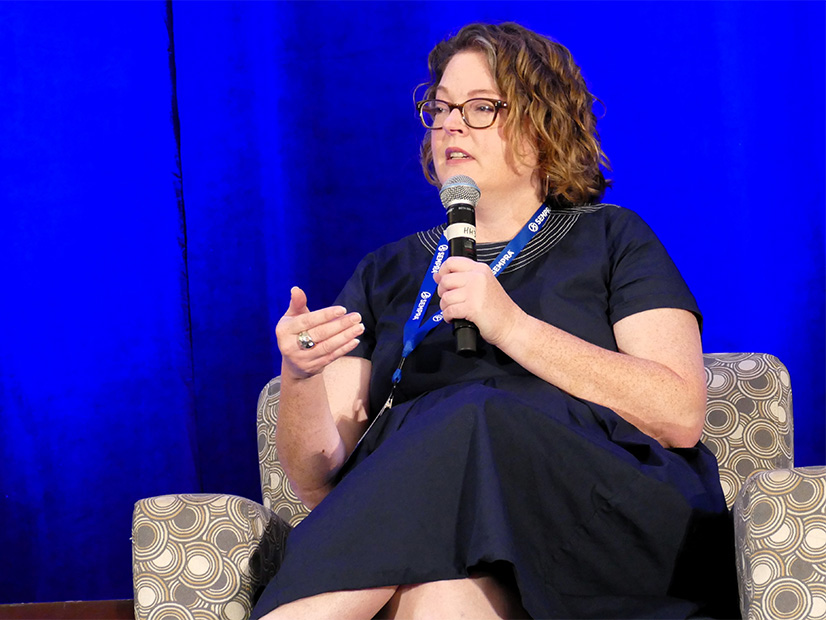
A change in nomenclature has heightened some concerns that Texas regulators are attempting to restrict the ERCOT Market Monitor’s independence.
Several ERCOT market observers were quick to notice that the Public Utility Commission’s request for proposals for a four-year monitoring contract refers to an “electric market monitor,” as opposed to an “independent” market monitor. The PUC said it is simply updating the Monitor’s name to align it with the statute and accurately represent its role.
However, state Sen. Charles Schwertner (R), who has overseen legislative changes to ERCOT’s market since the deadly February 2021 winter storm, said in a letter to the commission that renaming the Independent Market Monitor (IMM) as the Electric Market Monitor (EMM) “implies the position is no longer truly independent.”
“While this contractor is hired through a contract with the PUC, it is ultimately the people of Texas within ERCOT who pay for this position,” Schwertner wrote. “This position is similar to an auditor or ombudsman, and their analysis should not be influenced, nor their recommendations suppressed, by politicians or bureaucrats.”
To be fair, the RFP does refer to an “independent wholesale electric market monitor.” PUC spokesperson Ellie Breed said that because this was the first time the Monitor’s contract has come up in four years, it was the “appropriate time to update” its name.
“For context, the word ‘independent’ describes the market monitor’s relationship to the ERCOT ISO and market participants,” she said, pointing to the commission’s rules that the Monitor “shall offer independent analysis to the commission to assist in making judgments in the public interest.”
“I don’t know that they’re necessarily doing anything to weaken the position, but I don’t see how you take the word ‘independent’ out of the name and not have everybody conclude that’s what you’re trying to do,” said Stoic Energy’s Doug Lewin, who closely watches the state’s electric market. “It sends a pretty strong signal, whether intended or not.”
The missive was co-signed by Lt. Gov. Dan Patrick, who is president of the Senate and has a contentious relationship with Gov. Greg Abbott, who appoints the PUC’s commissioners.
Beth Garza, who served as the IMM’s director from 2014 to 2019, pointed to that rivalry between two of the state’s political leaders as possibly playing a role in the letter’s issuance.
“I would like to think this has a lot to do about nothing, but it could just be signaling just these bigger tensions between the Legislature and the commission, which may just be evidence of underlying tensions between our lieutenant governor and the governor,” she said. “You can build a pretty credible kind of conspiracy for a pretty credible argument for all of this.”
Monitor Carrie Bivens — a vice president for Potomac Economics, the firm that has held the IMM’s contract since 2006 — has twice found herself at loggerheads with the commission.
She has consistently opposed the performance credit mechanism, former PUC Chair Peter Lake’s preferred market design, and recently said ERCOT’s use of its new contingency reserve service “likely” raised the real-time market’s energy value by $8 billion to $10 billion in three months. (See Market Monitor Pans ERCOT Market Redesign and ERCOT IMM Raises Concerns over Newest Ancillary Service.)
“It’s a tense position, because you really do need to take unpopular positions that not only the commission may not like, but there’s very few in the market that are going to like it,” Lewin said. “You’re going to get just a lot of it by its very nature. It’s not conflict, but it’s tension. It’s just inherent in the role.”
Bivens said she was unable to comment on the matter.
Schwertner also criticized the RFP’s language requiring the PUC to be notified by the Monitor of any request to speak and for the apparent ability of the commission’s executive director to remove the IMM’s director with the commissioner’s approval.
“We urge you to consider the concerning provisions contained in the new RFP and ensure the IMM’s continued independence in the final scope of work and the contract,” he wrote.
Breed clarified that the EMM would not be required to seek approval from the commission for speaking engagements, but only notify the PUC of those engagements and the topics they are invited to address. She said the commission’s standard contract terms and conditions direct that, at the PUC’s request, the contractor “must remove from the project any individual whom the PUC finds unacceptable for any reason” in its discretion.
Garza said requiring the Monitor to notify the commission of any speaking requests and the topic “was a practice during my time at the IMM.”
“They’re just codifying that expectation,” she said.
The issue may be moot anyway. Responses to the RFP are due Oct. 30, and the contract begins Jan. 1. Should the contract not be awarded to Potomac, the new Monitor would have to begin a transition period Dec. 1.
“The timing of the RFP would indicate to me that the commission is not really in a position to go to somebody else,” Garza said.



